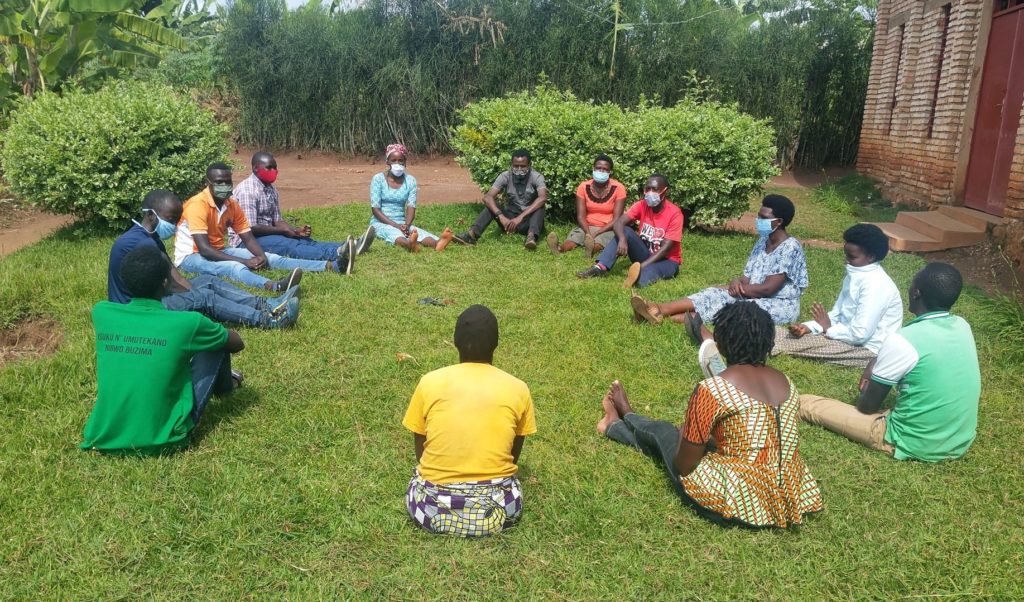
An edited extract from the Network for Africa Summary of Achivements 2020 Report, showcasing the ongoing success of the partnership between Survivors Fund (SURF) and Network for Africa to deliver youth counselling to survivors of the genocide against the Tutsi and related vulnerable persons in Rwanda.
2020 brought us Covid-19, yet so far, the countries where Network for Africa has its mental health projects have averted the tragedy and chaos seen in the UK and USA. However, work in post-conflict countries brings particular issues. Emergencies of any description can cause flashbacks. And for people who have anxiety, depression or more serious mental health issues, the impact can be more severe. The sense of isolation from losing your support network is hard; the impact on poverty when you are a ‘day trader’ living hand to mouth day to day, unable to sell your vegetables in the street; and the fear of catching Covid-19 can be paralysing. Knowing this, our partners have continued to deliver vital services to those most in need. We are proud to share their achievements in 2020 below.
In Rwanda we supported a further 263 young genocide survivors through our group counselling programme. They were divided into 12 groups and met twice a month, supported by two peer support counsellors per group who were selected by the group members. These peer support counsellors provided a vital role moderating sessions and referring any participants who needed extra support for individual counselling. By the end of the year, most participants felt positively about their future, whereas at the start they had little hope. Their isolation has reduced, and their self-esteem has increased. They are now able to cope when things go wrong, using the coping techniques they have been taught, dealing with trauma and its symptoms. Government officials have remarked on the impact, citing peace building and reconciliation, an unintended consequence. Looking ahead, we hope to provide 60 participants with entrepreneurship training and loans to set up their own businesses. We are also raising funds to offer free childcare for the mothers who have to bring their babies and toddlers to the group counselling sessions.
A few highlights:
- 263 young genocide survivors were enrolled in peer support groups where they received group counselling and support, bringing the total helped since the start of the project to more than 1,300.
- 24 new Peer Support Counsellors were trained to run the peer counselling groups. They also keep a watchful eye on their group members, referring those that need extra support to SURF’s counsellors. So far 130 peer support counsellors have been trained.
- 461 home visits were made to offer extra support to particularly vulnerable participants.
- 856 participants were offered individual counselling.
- 1,340 participants received telephone counselling during Covid-19 lockdowns.
- 24 new Health Workers were trained in recognising signs of mental ill-health, e.g. anxiety, depression and post-traumatic stress disorder, bringing the total since the start of the project to 102. This ensures that knowledge is embedded and has long-term sustainability.
“I have really learnt much from this counselling service, and I am thankful for the support, which has helped me to overcome my depression and anxiety. I have learnt different techniques that can help me when I face stress symptoms. Being in the group has helped our hearts and now we are dreaming of changing and developing ourselves.“
Beneficiary of the Survivors Fund (SURF) Youth Counselling Project made possible through the funding and support of Network for Africa
